The Glass Menagerie is a largely autobiographical play by Tennessee Williams, told from the perspective of narrator Tom Wingfield. Tom is an aspiring poet working a warehouse job to support his family. The plot centres around a single event, resulting from his mother’s desire to find a partner for his sister. Whilst the play’s dialogue and story are regarded a success, Williams’ clear vision is best expressed through his detailed stage directions and author notes. Williams states that The Glass Menagerie is a ‘Memory Play’ and, in doing so, offers the performance style to the director on a plate: expressionistic.
Speaking of plates, it is the in the crockery that the consistency of style begins to break apart for the Schoolhouse Productions’ current adaptation of The Glass Menagerie. In the stage direction of the first scene, Williams calls for the actors to mime cutlery and eat invisible food off invisible plates. Director Anna Friend stays true to the playwright’s direction but a cabinet filled with crockery behind the actors proves to be very distracting. In fact, the whole set is entirely realistic and in contrast to the expressionistic stage directions Williams provides. The juxtaposition between the expressionistic and realistic styles disables suspension of disbelief, forces us to question what we are witnessing, and ultimately detracts from the production overall. In moments where Williams does not specifically indicate expressionistic action, Friend opts for realism and in doing so shatters the illusion so skilfully created by the source material.
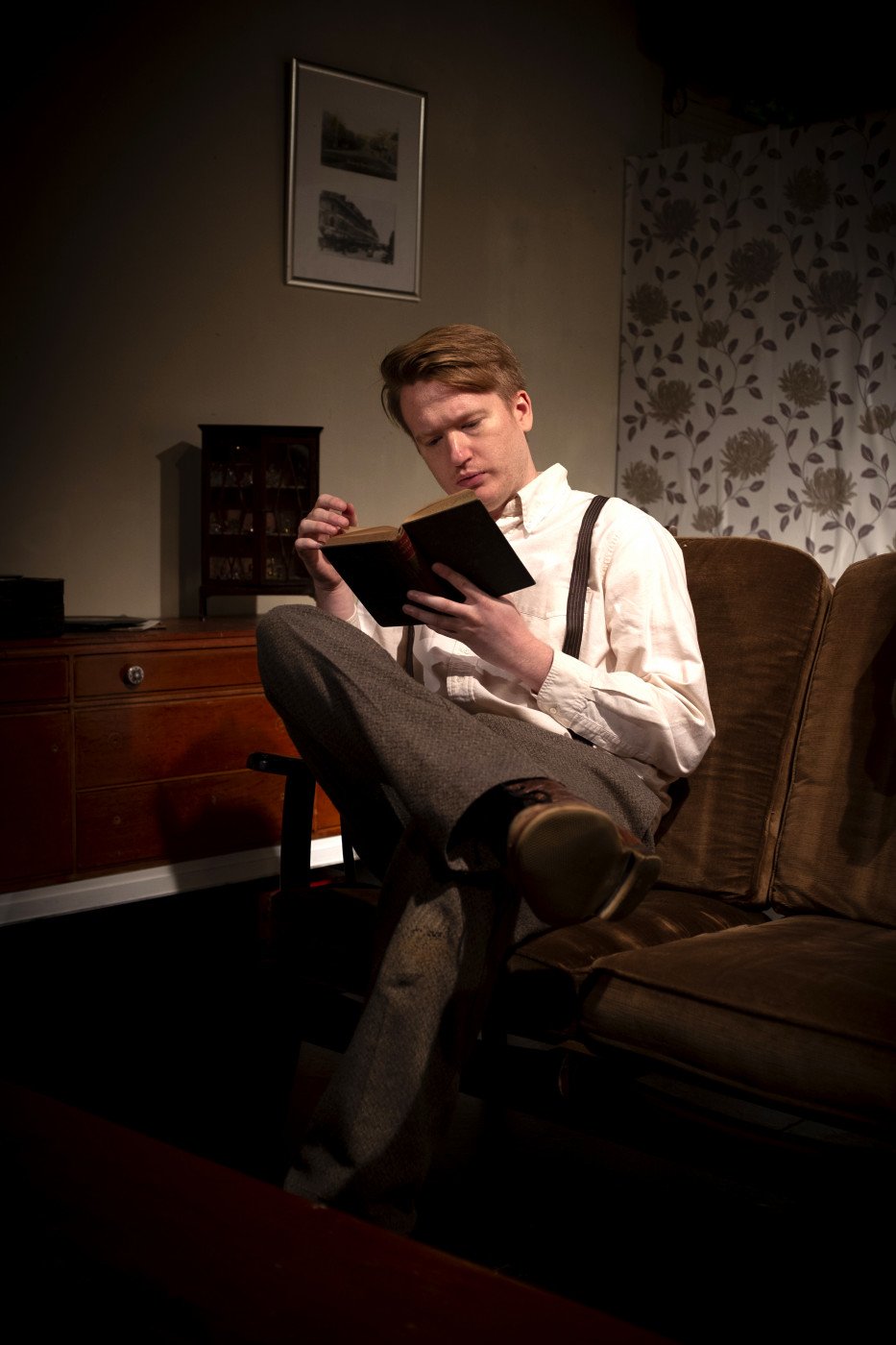
With Permission: Chris Dobson Photography
For the most part, the first act is a confusing mess, with some splendid, standout moments. Early in the play, family matriarch Amanda Wingfield fondly remembers her younger days filled with gentlemen callers. She walks into a spotlight as the rest of the stage dims, allowing the audience to feel both her joy and the pain hidden beneath the grandiose affectations of a faded southern belle. This is one such standout moment. Louise Thomas, who portrays Amanda gloriously, acts as a life-jacket, just about keeping the first act from sinking. Thomas’ performance captivates the audience in laughter, and with the aura of complexly crafted confidence with which she glides around her living room.
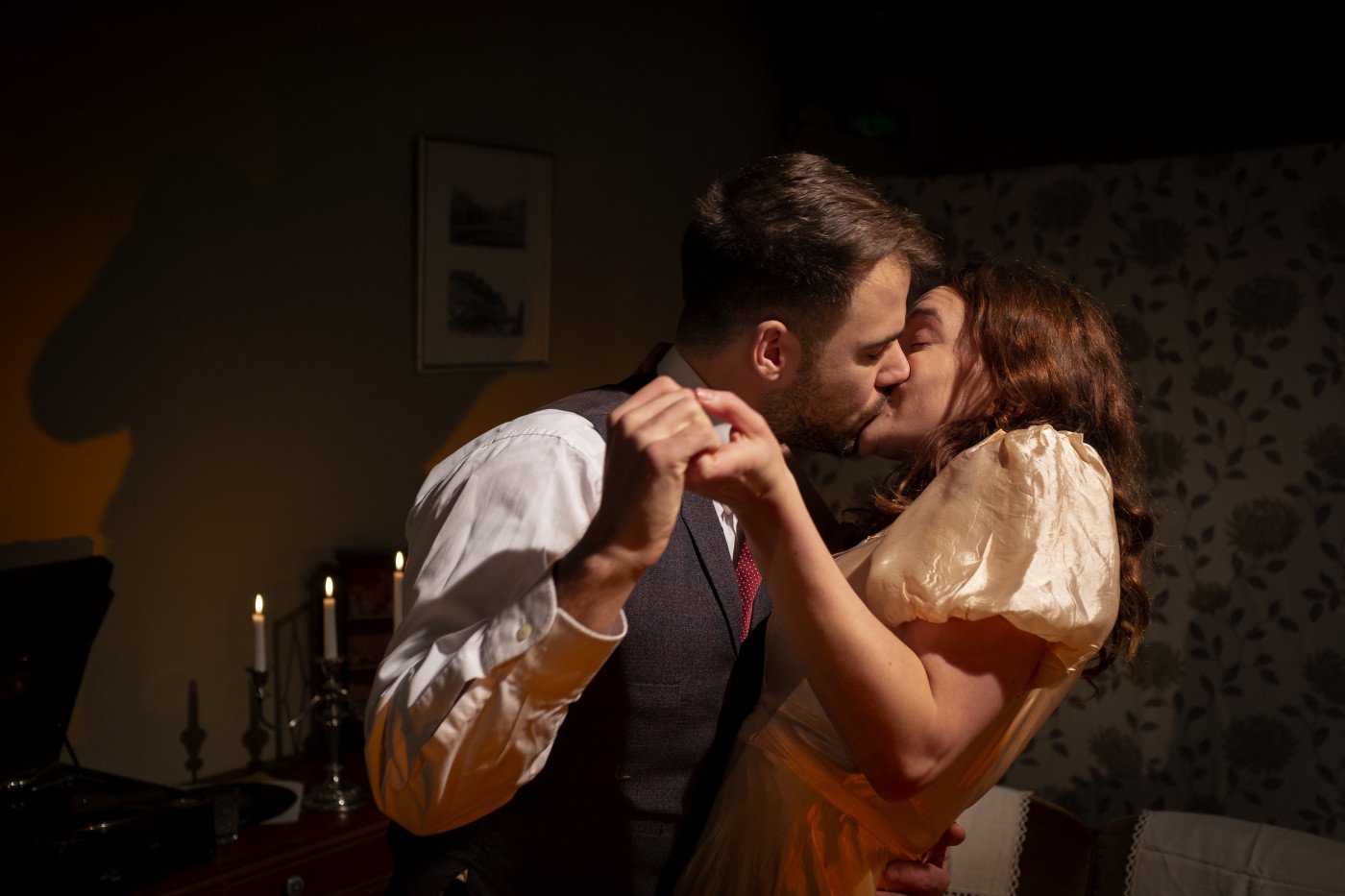
With Permission: Chris Dobson Photography
The absolute highlight of the production, however, does not come until the second act. For a large portion of this act, Amanda’s intensely shy daughter, Laura, and Jim O’Connor, her potential suitor, are alone onstage. The ‘will they/won’t they’ tension, coupled with the fantastic chemistry between the actors, drew me in more so than any stage production before. As Laura and Jim respectively, Jennifer Jope and Jordan Danels bring electricity to a scene where, ironically, the power goes out and they are left in candlelight.
The charming surroundings of the tiny Alma Tavern Theatre suit the play perfectly, allowing the audience to feel a part of the Wingfield family, sharing in their memories, of sorrow and joy. Further demolishing the fourth wall, actors pass from behind the audience to enter the stage set – the family home – and, as Tom, Adam Forrester performs monologues alongside the audience on the stairs. It is a shame, then, that whenever I do turn around after hearing the stage-door behind the audience open, I see an out of character actor waiting to go on stage or, worst of all, communicating with the sound and lighting technicians. If using the entire room as a stage, ensuring characters remain present is vital.
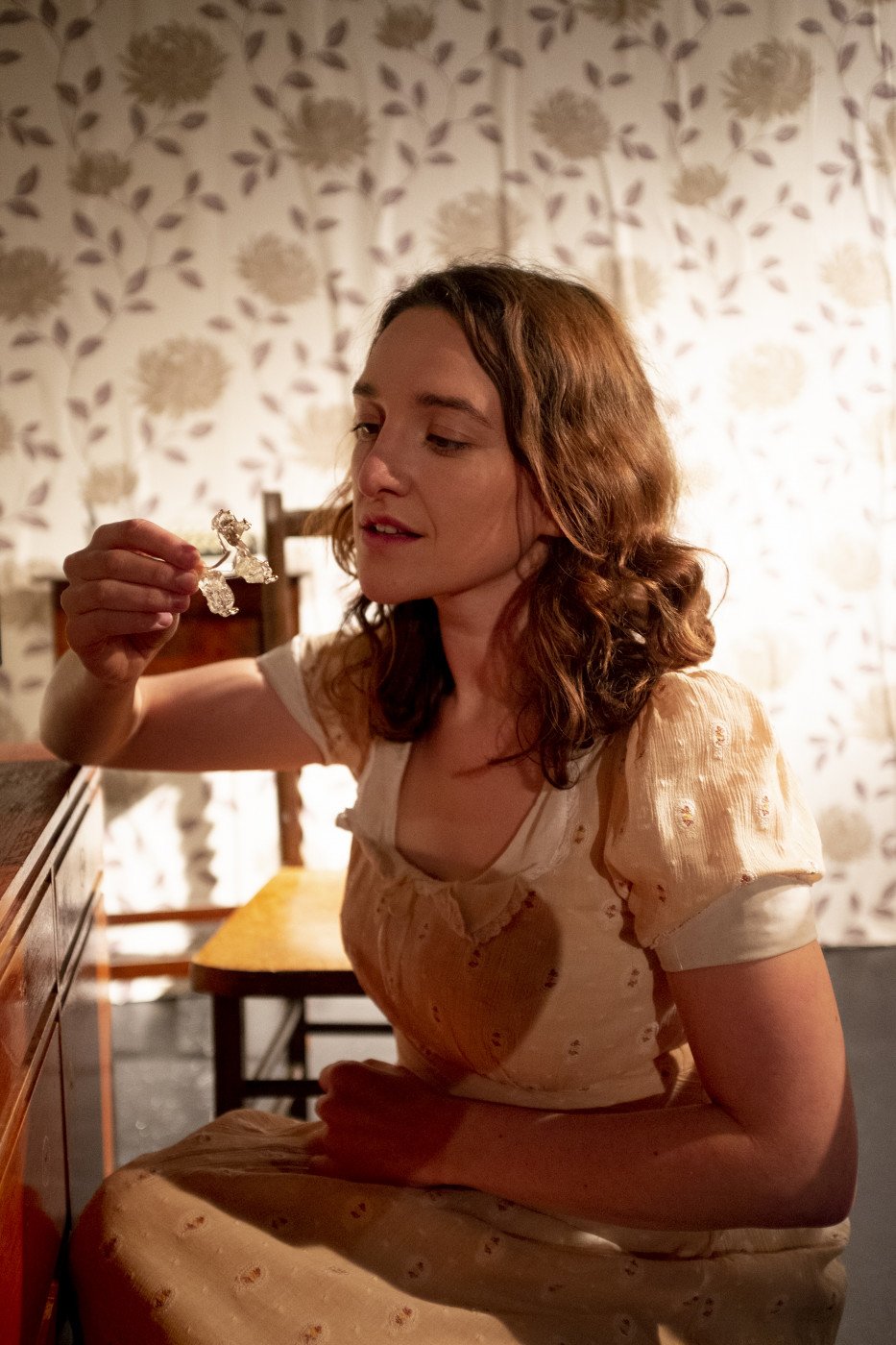
With Permission: Chris Dobson Photography
With a huge history, Tennessee Williams’ The Glass Menagerie is a difficult play to tackle. To succeed it must either steadfastly follow Williams’ concise direction, or abandon it entirely. Straying from one approach to the other, in this instance The Schoolhouse Productions unfortunately end up serving little more than their own heads on an all too visible plate.
Filed under: Theatre & Dance, Written & Spoken Word
Tagged with: performance, play, Schoolhouse Productions, Tennessee Williams, The Alma Tavern, The Alma Tavern Theatre, The Glass Menagerie, theatre

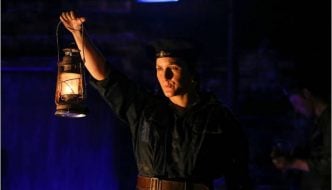
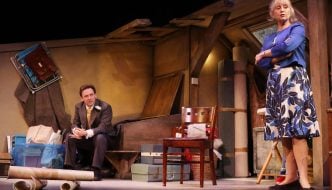
Comments